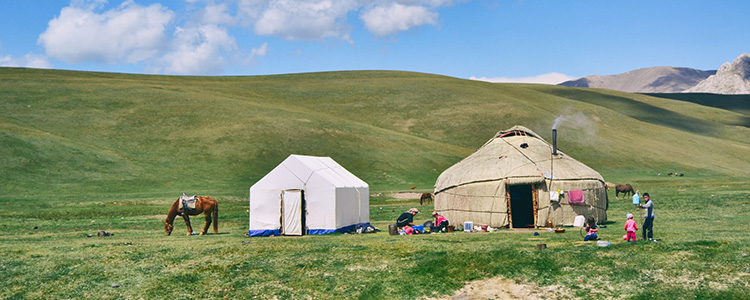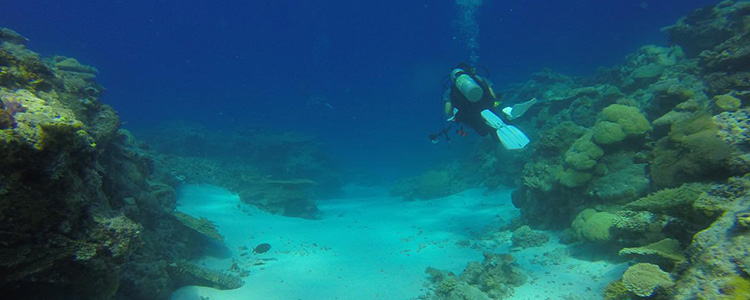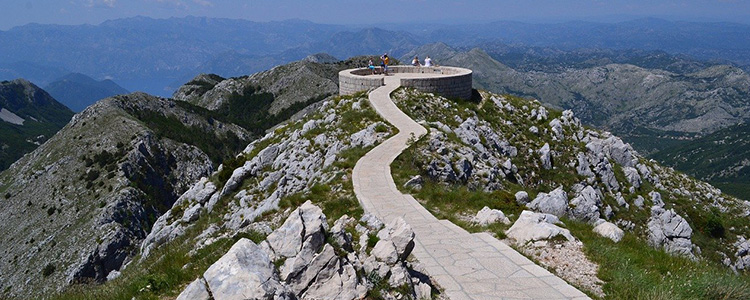Europe: typical European habits, food customs, recipes and philosophies from Europe
Typical European habits, food customs, recipes and philosophies
 Habits and customs from Hungary
Habits and customs from Hungary
What are the customs in Hungary regarding food?
- Food in Hungary Hungarian cuisine is influenced by French, Turkish, Serbian and other Central European cuisines. A lot of meat (goulash) is eaten and beer is drunk. If you order a Hungarian breakfast, you should not be surprised if you are served a combination of egg, red pepper, sausage and onion on sourdough bread.
- Paprika is the most prominent ingredient in many dishes, for example in goulash, paprika chicken or the pancake filled with meat and sauce. A paprika from Hungary is the one you look for, one paprika isn’t the other.
What are the best recipes in Hungary?
- Specialties Gulyás (goulash): Beef and pepper soup.
- Gundel palacsinta: Pancakes often with walnuts, raisins and chocolate sauce.
What are the best drinks in Hungary?
- Bikavér (Bull's blood) is a strong red wine.
- Pálinka: A type of brandy, available with different fruit flavors (cherry, pear, apricot and plum).
- Unicum: A liqueur made from herbs, which according to Hungarians is an excellent medicine for all kinds of things. Have a cold? Drink Unicum! This drink even has a museum in Budapest (the Zhack Unicum museum).
What are notable holidays and festivals in Hungary?
- Hungary's festival is Sziget. Every year in August, famous rock and pop artists meet on Margit Sziget (Margrit Island) in the middle of the Danube. Order your tickets in advance because they sell out quickly every year.
- Hungary's National Day is on August 20, which celebrates the founding of Hungary by Saint Stephen in the year 1000. On the evening of August 20, there is a big firework display at the Danube River in Budapest.
- Republic Day/National Day is on October 23, which commemorates the Hungarian uprising of 1956. There are speeches and exhibitions throughout the country.
What are the remarkable habits in Hungary?
- When you greet, you shake hands. On official occasions, when you greet elderly you bow and give a kiss on both cheeks.
- Toast on health before you start eating.
- Hospitality and socializing with friends and family is a habit. Gatherings with food, red wine or coffee are favorite. It is rude to refuse an offer of food or drinks.
- Hungarians are famous for the bath culture and saunas. Taking a thermal baths is a social activity and a good way to relax.
- Most Hungarians are superstitious and have beliefs it is bad luck to walk under a ladder on Friday the 13th.
 Turkish habits, customs and lifestyle
Turkish habits, customs and lifestyle
Turkey is a beautiful country, where a visit to the country will be more than worthwhile. Like all other countries, Turkey is also known for many things. Perhaps good to know before you visit the oh so beautiful vacation country!
Asking for photos
Don't be surprised if in Turkey you are asked for a nice picture. In many places in Turkey there are mainly people of Turkish origin and therefore they find it quite special, as soon as someone with a different origin walks past them.
Unexpected visit
In Turkey, receiving unexpected visitors is very normal. In Turkey, the inhabitants are very hospitable and receiving visitors is something they hold in high esteem. You are not seen as a stranger, but as family. For that reason it is not common that they often indicate that they want to come along. Whether the visitors come super early in the morning or stay until late at night, this is all normal. Often they even offer to stay the night and this is not something strange to be surprised about.
Turkish tea
Something that can't be missed in Turkey is drinking Turkish tea. It is sometimes seen as rude if you refuse to drink Turkish tea (for example when visiting). Keep in mind that the locals often don't stick to one cup and will refill your cup despite your indication that you don't want any more. Putting your teaspoon on the cup is a sign that you really do not need to fill it up again, this is an often used tactic to indicate in a polite way that you do not want to drink any more.
Deceive customers
Currently, the economy in Turkey is not doing well and many locals see only a way to cheat people in order to provide a (good) income. As soon as they notice that you are from abroad, you need to be extra careful. Often the prices are not mentioned on the product and you have to ask how much it costs. If you come from abroad, you will be asked a much larger amount. Try to take someone with you who speaks the language and/or avoid these kinds of stores and only buy in stores where the prices are already listed.
Ice Cream Man
Want to get some ice cream from the ice cream man? Then be ready for a fight with the ice cream man, because you don't always get that ice cream just like that! The ice cream men in Turkey often play pranks, this is what they are known for. Once you want to take the ice cream, this does not always go as you had hoped. On YouTube you can find nice movies of how people, often children, are fooled by the ice cream man. 1 thing is certain: being an ice cream man in Turkey cannot be seen as a boring job!
Point system (school, study & profession)
In Turkey they do not have the luxury of being able to make many choices regarding their school, study and profession themselves, it is all based on a points system. You score an amount of points when you take an exam, based on the number of points scored, you are offered a number of options of educations that you may study. After choosing an education, you often end up in a draw first: it is not certain whether you can take that education. Even if you succeed in being admitted to the education, you are not there yet, because within the education there are also exams based on points that determine the direction you may/must take within the education. A small example is if you are training to be a 'police officer', you are not allowed to just stand everywhere like a cop. The more dangerous your position as a police officer is, the more points you need for this. In addition to the fact that you can't just choose an education and pursue a particular profession, you also don't have the option to choose a school or the location of your work. You give a number of preferences, to study and/or work in certain cities in Turkey and then they will look to see if there is a place there for you as a student and/or employee desired. Many students find the whole points system to be poorly work and unfortunately this is reflected in practice. Finding work is incredibly difficult, so much that even many students who have completed university are retracing a new university education in the hope that they will be able to find work that way. At a young age, children already live with a great deal of stress because there is nothing but uncertainty about studying and working in Turkey.
Family
Family is incredibly important, specifically when it comes to parents. People spend a lot of time with family and everyone has a lot of respect for each other. There are no flaws in caring for the parents and older people in the family, as they deserve good care from the family members and this cannot be handled loosely. They feel it is important that their honor is not affected and they contribute to this together.
Cats
Cats are very popular animals in Turkey, they are also seen as beautiful animals in Islam. You will often see residents giving cats something to eat, often you will see trays with food and water ready for the cats. You can also pet them, they often do nothing and love to be loved.
The bus
Want to catch the bus? Then keep in mind that sometimes the buses drive off with the doors open. Do not stand near the door and pay close attention to this as well.
The army
It is mandatory for men in Turkey to enter the army for a certain number of months. By doing this, you get a salary and the great title of "soldier" for this. Being a soldier, is seen as something honorable and important. Parents are therefore prouder than proud. Once their son enters the army, they proudly calling themselves 'the parent of a soldier'.
Going out in the evening
In Turkey, it is not the case that it is better to stay at home during the evening hours due to safety concerns. Due to the heat that is least tolerable during the day, many locals tend to congregate outside only after sunset. Until the beginning of the night you see that everywhere is full with many families sitting together. Moreover, there is also a different kind of fine ambiance in the evening hours, therefore do not feel withdrawn to try this out.
The weather
The weather in Turkey can be quite different. Winter is known for being colder than cold, there is so much rain and snow that there is often severe weather. There are small annual floods in various places and some people can't even leave their homes because of the height of the snow that has fallen on their doorstep, which can be meters high! The summers on the other hand are often very hot, with temperatures around 40/45 degrees. It is not recommended to walk outside in the afternoon, because the sun is at its strongest. The three most important things to pay attention to are sunscreen, avoiding the sun as much as possible and drinking enough water.
Throwing garbage on the street
Don't be surprised if you see people throwing trash on the street instead of in the trash can. Throwing trash on the street is seen as normal and certainly not as the end of the world. Sometimes, when asking for a trash can in the neighborhood, people will even indicate that you can just throw it on the ground somewhere.
Hospital
If you become unexpectedly ill while in Turkey, you can expect to receive a serum when you visit the hospital. In Turkey, a serum is often administered directly in the hospital as a first resort. This serum is intended to make you feel well again as soon as possible, preferably within an hour of being administered.
Production of food
Every province/city in Turkey is known for producing something to eat. For example, the city of Malatya is known for the best dried apricots. Around summer time, if you visit this city, you can find apricots everywhere, openly dried on the ground under the sun. This total work usually takes about three/four months of time, this is then sold in the market and/or to big suppliers for abroad. Many people do not have the opportunity to work and see this as their chance to make money, annually for several months they are busy all day with heavy physical work under the sun. This is also the money they have to live with for the year, but don't underestimate this: this often yields a lot of money!
 What are typical Dutch habits, food customs in the Netherlands and Dutch language and philosophies?
What are typical Dutch habits, food customs in the Netherlands and Dutch language and philosophies?
What are the customs in the Netherlands regarding food?
- The Netherlands is an open country where you can find almost all kinds of food from different countries in big cities. It is often said that the Dutch do not have a food culture. However, there are some special unique Dutch dishes you definitely can not miss. The Dutch kitchen is also very influenced by the Indonesian and Surinamese kitchen.
Specialities
- The original bitterballen are deep-fried pork or beef ragout in a crispy batter. More and more modern options of bitterballen are avalaible like vegetarian (mushroom) cheese - and shrimp bitterballen. You can get them in the snackbar or a specialty shop like Van Dobben.
- Broodje kaas - The Dutch often lunch with a cheese sandwich or other cold snacks. Hot lunches are less common. Pre-made sandwiches are made and put in a lunch box and that is what the Dutch have for lunch.
- Beschuit met muisjes of hagelslag - Hagelslag (chocolate sprinkles) and muisjes (small anise seeds) are popular toppings for sandwiches. Round toast with muisjes is served when a baby is born in the specific colors of the baby's gender.
- Drop is a salty licorice-like candy that many Dutch people like. Many foreigners do not like the salty licorice, the sweet drop they like better.
- Frikandel - A frikandel is a deep-fried meatloaf that is a popular snack. Also available in the snackbar.
- Stroopwafels are two thin wafer cookies with caramel sauce in between. You can find them in any supermarket and even fresh and warm at open air markets.
- Stamppot is the name of the dish made of mashed potatoes mixed with vegetables. Originated out of laziness. It is made in one pan and potatoes are simply being mashed (hence the name stamp with means mashed). There are various kinds of stamppot. Boerenkoolstamppot is made with kale. Zuurkool stamppot is made with sauerkraut. Hutspot is made with onions and carrot. Andijviestamppot is made with endive.
- Poffertjes are a version of a tiny airy pan cake, served with butter and icing sugar.
For your information
- If you want a cup of coffee and a piece of very delicious Dutch apple pie, a "Coffee Shop" is not necessarily the place you want to be. Coffee Shop is a Dutch euphemism for a soft-drugs café. They can sell customers legally a certain amount of cannabis for personal use. Unless that is what you are looking for, you want to go to a café, a snackbar, or cafeteria instead.
- Koffietijd - The Dutch love coffee and often drink it with cake or pastries or one cookie (not two or three) you can take out of the cookie jar and afterward it closes.
What are notable holidays and festivals in the Netherlands?
- Kringverjaardag - It is a habit to celebrate ones birthday in a circle of chairs. One of my former collegues reminded me of this dutch habit. It goes like this, either it is a dutch party and you bring your own food and often a kring verjaardag. Th -ere is not much swapping of chairs and a lot of talking in the group, less individual talks perhaps with your neighbours sitting on the right and/or left side.
- Happy birthday - Is wished to everyone attending the kringverjaardag, not only meant for the celebrant.
- Carnaval (february/march) is officially starting on a Sunday and ends on a Tuesday. The specific date it is celebrated is depending on Easter, three days before Ash Wednesday. It is officially especially celebrated in the South of the Netherlands in cities like Tilburg, Den Bosch, Breda and Maastricht. The Dutch Carnival is an experience you should not miss. Costumes and face paint required!
- King's Day (27th of April): In 2013 King Willem-Alexander took over the reign from his mother, now Princess Beatrix. After decades of celebrating Queen's day, the first King's Day was celebrated in 2014 on the birthday of the king. This is a holiday for everyone in the Netherlands, on which children sell toys on flea markets (de vrijmarkt) and activities are organized all throughout the Netherlands, including street games, parties and festivals. It is celebrated the night before the 27th (birthday of the King) and the day itself. The Dutch wear orange and especially in Amsterdam and bigger cities it is celebrated on the streets.
- Bevrijdingsdag/Liberation Day (5th of May): The day on which it is celebrated that the Dutch were liberated by the Allied and the end of the Second World War in the Netherlands was official. A day full of festivals throughout the Netherlands. Besides Kings Day one of the best days for street parties and festivals.
- Pride Amsterdam is celebrated the first Saturday in August: A day in Amsterdam you cannot miss. The highlight of the two days is the Canal Pride on Saturday, in which many boats parade through the canals of Amsterdam, applauded to by thousands of people. Throughout the city, there are activities and parties: a truly unforgettable day for celebrating gay rights.
- Prinsjesdag (every third Tuesday of September): the day on which the new finance plan is presented to the Dutch citizenry by the Dutch king. The official carriage ride through The Hague with the King and Queen is a true spectacle.
- Sint Maarten (11th of November): mostly a festivity for children, in which the life of Saint Marten is remembered. The children go door by door with self-made lanterns and sing songs in the hope to get candy and fruit.
- Sinterklaas (5th of December): perhaps the most Dutch holiday there is on which the birthday of Saint Nicholas (Sinterklaas) is celebrated. Sinterklaas and the pieten already arrive per boat from Spain around half November. All leading up to the 5th of December when all the children, who have behaved well, receive presents from the birthday Saint. To receive a gift, you put your shoe near the chimney, with a carrot for his horse and sing a song. The whole Zwarte pieten discussion is mentioned somewhere else.
- Silvester evening in the Netherlands: dinner is shared with family or friends, often at home.
- "Oliebollen" are eaten (fried dough) and champagne will be served at midnight. The last seconds of the former year will be counted out loud. On television there is a broadcast of an old year conference (often by a comedian), that is a Dutch tradition.
What are the notable habits in the Netherlands?
- The Dutch have some unique customs and habits that may seem strange to foreigners.
- How is the weather? The Netherlands has a moderate maritime climate with cool summers and mild winters. It is a common assumption that it always rains in the Netherlands, but this is more so a feeling than reality. The Dutch climate is very unpredictable and therefore the Dutch are known for always talking (or complaining) about the weather. A standard typical Dutch opening sentence is: How is the weather?
- Gezelligheid - Gezelligheid is an important concept in Dutch culture. It means cosiness: being together, having fun and relaxing. Gezelligheid kent geen tijd is a famous Dutch expression. Gezellig he?
- Oranje, oranjegevoel - Orange is the color of the Dutch. The Dutch wear orange on Kingsday and when the Dutch football team is playing (high level only).
- Birthday calendar or tiles- Many Dutch people have a birthday calendar hanging on the toilet so they never forget a birthday or a tile with Delfts blauw with a wisdom like sentence for example: Oost, west, thuis, best. East, west, home is the best.
- Zuinigheid - Fruitfullness, the dutch generally don't like to spend more than necessary and will watch de kleintjes (small coins). They pay close attention to their pennies and go Dutch or send a tikkie (online share costs or pay back what someone has spent for you).
- Complaining - The Dutch love to complain, and talk negative but that doesn't mean they are unhappy. It's more of a way to connect with each other. Most popular topic is the weather to complain about, it is often too cold, rainy or too hot.
- Cycle - The Dutch cycle, in the rain, with children, doing groceries, everywhere. People sit at the back of the bicycle, with the legs on one side.
- Directness - The Dutch are generally very direct in their communication. They say what they think and like honesty.
- No small talk - The Dutch dislike unnecessary small talk and like to get directly to the point.
- Self-reliance - Dutch people are very self-reliant and like to solve problems themselves. Not to be dependent of another person.
- Dutchies - As a slang term for cannabis joints or blunts, or a few different entities related to Dutch culture and travel. I am refering to this image, one of the Dutchies! Our mascotte.
What about the Dutch language?
- Dutch is not an easy language to learn - pronouncing those throaty, guttural sounds requires a lot of practice. As in any language, grammar rules do not always apply to every situation and sentence structures can deviate from your native language. If your native language is similar to Dutch, or you have studied a parallel language, you will be one step ahead of others.
- Despite English not being an official language in the Netherlands, it is spoken by most of the Dutch natives, and it is thus possible to spend years in the Netherlands without speaking a single word of Dutch (depending on your activities, of course). However, the Dutch appreciate it if you put some effort in learning the language and if you plan on staying longer in the Netherlands, finding a job will be a lot easier if you speak at least some Dutch.
- Decide whether you would prefer to follow an established course or take private lessons. The Netherlands has a national network of language institutes that offer courses in Dutch for foreigners. These courses are usually referred to as NT2, Nederlands als tweede taal – Dutch as a second language. If you are coming to the Netherlands for studying purposes, ask your university if they offer any Dutch courses for foreign students.
 What are typical Greek habits, food customs, recipes and philosophies in Greece?
What are typical Greek habits, food customs, recipes and philosophies in Greece?
What are the customs in Greece regarding food?
- Greeks love good food, and eating out. Small snacks (mezes) are often eaten before dinner with a drink.
- Greek food is quite simple, without elaborate sauces or many herbs. However, a lot of olive oil, garlic, thyme, oregano and onion are used to give the food flavour.
- Olive oil and olive trees can be found everywhere in Greece. The Greeks love their olive oil.
- Mezedes, these are the Greek tapas. Keftedes, salad, calamaris, souvlaki, octopus, spanakopita (spinach and feta in dough).
- There are still many Turkish influences to be found in the Greek cuisine, such as the sweet bakeries (zaharoplasteio) where baklava is usually also sold.
- The Greeks eat late, around 9:00 PM, 10:00 PM or even 11:00 PM with a lot of ouzo (anis drink with 40% alcohol) and cosy moments around the dining table.
What are the best recipes in Greece?
- Specialities in Greece Dolmades: Stuffed vine leaves.
- Missed: Tomatoes, peppers and courgettes stuffed with rice.
- Moussaka: Eggplant with lamb, cinnamon and red wine.
- Souvlaki: Roasted meat.
- Horiatiki: Greek salad with real feta cheese and olives.
What are the best drinks in Greece?
- Greek mountain (herbal) tea.
- In Greece you are allowed to drink alcohol from the age of 16.
- Greek wine is very affordable and easy to drink.
- Although not everyone likes it, Retsina is a special type of wine made with pine resin.
- Ouzo: Strong aniseed drink.
- Greek coffee is strong, and many Greeks therefore add enormous amounts of sugar to it.
What are notable holidays and festivals in Greece?
- A Greek year revolves around saints' days and festivals. Most people are conventionally devoted to a saint, areas, stations, boats, you name it. Did you know that name days are more important than birthdays? And of course, take the Mediterranean ones to celebrate it all!
- Panigiria is a party where everyone/the entire village comes together to celebrate. Music, food (souvlaki), the syrto, the sirtaki and other dances are ingredients of this party. On May 25th, Greek Independence Day celebrates the revolution against the Turks. Every city loves parades, with the most impressive military parade in Athens. May 25th is also a Greek Orthodox religious holiday.
- On O(c)hi day, which is on October 28th, every year the Greeks celebrate their resistance against the occupation of Italian structures of strategic areas in Greece. Ohi means no.
- From June to September, the Hellenic Festival is held in various places in Greece. With music, dance and theater performances in the Odeion of Herod in Athens and classical Greek tragedies in the amphitheater in Epidaurus.
What are the notable habits in Greece?
- The Greeks are often very warm and temperamental people who elevate hospitality as an art. There is often contact (arm or shoulder) and kissing, both by men and women naked. A conversation within a conversation is not acceptable.
- A Mediterranean standard is everything in moderation and was invented by the Greek philosopher Cleobulus. It is the key to good living.
- Messimeri is the Greek siesta, from 2:00 PM - 5:00 PM. Shops are closed, people have lunch or sleep.
- The Greeks meaningfully put plates on the floor after the meal. This tradition is typically Greek, but already forbidden. It is dangerous because of the flying scraps. If your plates fly around, it may be because the restaurant has a license.
 What are typical Mediterranean habits, food customs and remarkable philosophies?
What are typical Mediterranean habits, food customs and remarkable philosophies?
Typical Mediterranean habits, food customs and remarkable philosophies
The Mediterranean Sea is surrounded by 16 countries. Of these 16 countries, 6 are in Europe, 5 are in Africa, 4 are in Asia. The 6 European countries that border the Mediterranean are Spain, France, Monaco, Italy, Greece, and the island country of Malta and Turkey. The 5 African countries are Egypt, Libya, Tunisia, Algeria, and Morocco; the 4 Asian countries are Syria, Lebanon, Israel, and Cyprus. Since the Mediterranean area is quite big, it is difficult to generalise, but let's try for a change.
To me the Mediterranean is famous for food. Often people speak about the Mediterranean diet. A Mediterranean diet consists food that is found in the region like fresh vegetables, local herbs and spices, fish and seafood, lentils, poultry, eggs, cheese, yoghurt, nuts. Consume with (a moderate amount of) wine and plenty of water. Many nutrition experts recommend the Mediterranean diet for health reasons. There is hardly any red meat in the diet.
General
- A Mediterranean habit is everything in moderation and it was coined by the Greek philosopher Cleobulus. It is key in living well.
- Everyone eats late.
Habits in Cyprus
- Family is a priority in Cyprus. Parents take care of their children. When parents grow old, children will take care of them. Old people take care of their grandchildren. Family is everything!
- People Cyprus are generally slow and they postpone things until the next day. Nobody is in a hurry and try to enjoy every minute of life.
- The meze is a selection of small dishes, like tapas. The meze is a good formula to enjoy multiple flavors and to socialize over a long meal.
- Some people in Cyprus believe in the evil eye, which brings bad luck, there are charms to keep you protected.
Habits in Egypt
- The hot climate has defined the Egyptians' national character - calmness. People in Egypt like to take it easy. They are often late and spend a lot of time to make a decisions. Non-punctuality and slowness are justified by the habit of living by the "Egyptian time". It is from the Mediterranean habit to relax. Egyptians' favorite word is "Bukra", which means "tomorrow". Which reminds me of mañana mañana.
Habits in France
- Fresh and homemade are the two words that describe home cooking in France. Most meals are freshly prepared meals. Everything made from scratch from salad dressings to bread. It is a daily practice for many Europeans. The French are famous for drinking wine with their dinner. All in moderation, then it is even good for health!
Habits in Israel
- Israeli diet is considered the healthiest of the world. It totally fits the Mediterranean diet, it is the Mediterranean diet! A lot of vegetables, lemon, chickpeas, moderate amounts of dairy and meat, and all with olive oil. All meals are served in small portions.
Habits in Italy
- I remember my time in Italy with huge meals, of multiple courses, hours and hours spent around the table dining with friends and family. One specific ingredient used in Italy is olive oil. Healthy to the max, used in small portions.
Habits in Malta
- Daily life in Malta is very laid back. No one seems to ever be in a rush.
- Many locals enjoy good conversation over a coffee. Malta is a very much family-orientated island, and you can see families spending time together.
- It is too hot during the day, especially in summer, when the sun is high on the horizon, so the shops are closed and people are resting.
Habits in Monaco
- Monacan habits are also connected to food! Daily eating habits reflect a Mediterranean heritage. French and Italian influences can be found in the local recipes. Breakfast is very small, but lunch and dinner often have multiple courses.
Habits in Morocco
- Morocco has a small part of the country, which is on the Mediterranean coast. You will find Mediterranean habits in Morocco. Family is for most Moroccans is the most important element in life. It is family before work, friends and sometimes even marriage. Many Moroccans live with their families before and after marriage. The topic family is a populair topic to talk about. It is normal to inquire about details of family relationships of a person you don't know.
- The people in the country are in general warm, open and do not have any inhibitions. A guest is a gift from Allah. People are likely to invite you to their homes.
- Dine and feed your guests even if you are starving is a proverb. The people are generous and will likely send you home stuffed and full.
Habits in Spain
- Flamengo is the example of exercise in a fun way, while dancing. Joy and sorrow threaten to overwhelm you. The raw passion of flamengo can bring you to another world. Get transformed as well and listen to:
- Pata Negra, Blues de la fontera (1987)
- Chambao, Flamenco chill (2002)
- Every one takes naps, the so called siesta. Shops are closed, people eat with family and friends and take a nap afterwards. The nap has the effect that you can't sleep early, so you work until later in the evening, since you had a siesta. You have dinner later and you sleep later.
- Mañana mañana is a word from the Spanish language that means tomorrow and morning. This word describes the period of time between midnight and noon. It means it is done sometime tomorrow, which means no stress. Take it easy. Enjoy life and relax when possible.
Please help me adding
- Algeria
- Libya
- Syria
- Lebanon
- Tunisia
 What are typical Portugese habits, food customs and remarkable philosophies?
What are typical Portugese habits, food customs and remarkable philosophies?
What are the customs in Portugal regarding food?
- Eating is a social occasion in Portugal, lunch is between 12 and 3 pm and can easily last 2 to 3 hours. Portuguese cuisine is Mediterranean, with typical Portuguese influences. Bread, cheese, pork and fish are the main ingredients of every Portuguese meal.
What are the best recipes in Portugal?
- A lot of fish is eaten, which is not surprising given the coastline of 850 kilometers. Popular fish dishes are the bacalhau recipes used to prepare dried cod. It is said that there is a bacalhau recipe for every day of the year. Besides dried cod, grilled sardines and caldeirada, stew with potato and different types of fish, are favorites. The Portugese love their meat as well: chicken piri-piri or arroz de sarrabulho (rice with pigblood).
- Bacalhau is salted cod. Bacalhau is more than a fish dish: in Portugal it is linked to myths, history and tradition. Nowadays most cod is imported from Scandinavia, but the demand for it has not decreased.
- Bollo de arroz: A kind of cake that together with a cup of coffee forms the Portuguese breakfast.
- Portuguese sweets such as ‘Pastéis de Tentugal’ are almost all made from egg and are loved by Portuguese and tourists.
What are the best drinks in Portugal?
- Coffee is a fixed part of the Portuguese breakfast. The price is low and the quality is good.
- A visit to Porto is not complete without one or more glasses of white or red port.
- Vinho verde is a light green wine.
- Ginja - The liqueur is always served in a shot glass, with a spirit at the bottom.
What are notable holidays and festivals in Portugal?
- About 80 to 85% of the Portuguese population is Catholic. Most holidays are therefore based on Christian holidays, such as Christmas, Easter and Ascension Day. At Easter, every Portuguese city sees beautiful processions, with floats decorated with flowers.
- Most towns and villages in Portugal have their own traditional festas or romarias. Romarias are local religious festivals that honor the saints of a particular area in Portugal.
- Queima das Fitas: Coimbra’s students celebrate the end of the academic year in the first week of May with parties, concerts and exhibitions.
- Festo de Santo António is on 12 and 13 June. Lisbon’s favourite saint is honoured with all-night parties in the city streets.
- Festa de São João: Porto and Braga in northern Portugal ‘go wild’ in June in honour of Saint Juan, with fireworks, concerts, campfires and lots of noise.
- Medieval Festival: The medieval market in the still-walled town of Óbido is the place for two weeks of sword fighting, singing minstrels, roasted pigs and spirits in July.
- Festival de Sudoeste: One of Portugal's biggest music festivals takes place every August in the coastal town of Zambujeira do Mar.
What are notable habits in Portugal?
- The Portuguese are traditional and conservative. Innovation and major changes within the family or community are not easily accepted. Life in Portugal revolves around the family and even now in the 21st century, old customs and traditions can be seen daily.
- Time is relative and being late for appointments is very common.
- Fado is a typical Portuguese music movement from the 19th century and the life song of the locals. While Fado used to be popular only in bars and brothels of the poorer neighborhoods in Lisbon and Coimbra, nowadays it is very popular and you come across it in many places.
- Typically Portuguese are azulejos, Portuguese tiles that you find a lot on and in railway stations, churches and houses. Often they are blue and white, but they can also be richly colored.
 What are typical Scandinavian habits, food customs and remarkable philosophies?
What are typical Scandinavian habits, food customs and remarkable philosophies?
Scandinavian habits and customs: Hygge to Fika
Why habits?
For a while now, I am inspired by all kinds of ways of living... Hence this magazine about Scandanavian Habits. I wish you can add as well. You hear more and more about all kinds of Scandinavian habits. All kind of different habits or way of dealing with life, that are interesting. What do you think?
Habits in Denmark
Hygge
- The danish word Hygge is impossible to translate, same as the dutch word Gezelligheid. What is the difference between Hygge and Gezelligheid, from my point of view? I think Hygge you are. It is a way of life, the way you live your life, instead of a way of making a sort of atmosphere. Gezelligheid can be made or the atmosphere is already with you, and thus as well a part of you. The dutch use the term Gezelligheid more of an atmosphere. It is not a reflection of you. Hygge is a mentality, a part of the danish identity. You will sit cosy at the couch with your thick socks, with a cup of Moon tea, in total harmony with yourself and the surroundings. You are, and you are not making an atmosphere. Not sure if I am right. What do you think?
- "Hygge is een toestand die je ervaart als je in harmonie bent met jezelf, je echtgenoot, de belastingdienst en je ingewanden". - Tove Ditlevsen
Habits in Finland
Jokamiehen oikeudet
- Jokamiehen oikeudet is common in Finland. They have a concept called ‘Everyman’s rights’, it allows everyone to roam freely in nature, camp, eat and pick berries and mushrooms anywhere in forests. How nice is that? As long as it all causes no damage or disturbance to nature or the landowner.
Sisu
- Sisu is the national character of the people in Finland. It is determination, interior gutts that comes from inside. What else can it be, living in a dark and cold country? Does sisu also apply to where you are from?
Habits in Iceland
- Loud Sniffing - Sniffing in Iceland is not unusual, it's considered normal there. Blowing your nose is seen as impolite.
- Dining etiquette - Talking with your mouth full, reaching out to the other side of the table, on top of someone else’s plate, eating quickly, using toothpicks is considered as normal dining etiquette. Same as obtaining a second without being offered is normal. Leaving the table before everyone is done, and bringing your plate to the kitchen is also normal.
- Soaking in hotsprings - Icelanders take full advantage of their abundant hot springs. Public pools and hot tubs are a common sight, and soaking naked is a daily social activity for many.
- Strong Naming Traditions - Icelanders have patronymic surnames, meaning their last name reflects their father's name.You either have the family name with -son or -daughter (dóttir) behind it.
Habits in Norway
Friluftsliv
- Frilufsliv is the concept of an outdoor lifestyle. Rejuvinate in nature. Go on a date in nature. Walk, hike up the mountain, ski before work. Walking on sundays is a common habit. You get the point.
Helgefylla, Julebord, Afterski
- Drinking alcohol in Norway is very expensive. So Norwegians specify the time, when alcohol is being consumed. The specific time in the weekends is known as Helgefylla. During holidays, at a Christmas party is Julebord, or after a day of skiing the so called Afterski. We call it Apresski, the drinking after skiing, but can be every day, we don't go skiing that often.... In Norway when it is alcohol-time, a lot goes down the throat.
Kaffepause
- Coffee is the popular. Norway has a high number of amount of coffee drunk per person every year. Coffee in the morning, coffee in the afternoon, coffee in the evening. Coffee, coffee and coffee. With or without a cinnamon bun.
Kos or koselig
- What is kos? How is it done? It is like hygge, it can be practiced alone or with others. Inside your home or outside your home. In your bed, beside a fire place, on the couch, in a cafe, in the forest, on the beach. Actually anywhere cosy. Add a good book or movie, cookies and a few candles and you are totally koselig.
Habits in Sweden
Dostadning
- Have you heard of the ritual Döstädning? It is called death cleaning. Cleaning everything up, before you die, so others won't be hassled with your mess. It is a good way of saying goodbye to things, to share memories and to give away stuff which are important to you to others you love and share the story behind things.
Fika
- The Swedisch term Fika is having coffee or tea is a phenomena. It is part of life, an important time of day. Hanging out with friends and get to know each other. A common time to fika is 10 am or 3 pm. You can have tea or coffee or even something else. And a cinnamon bun is part of the deal. Different right? For me, a cinnamon bun is a whole meal. In the Netherlands we have cake when it is someones birthday, or eat a cookie together. Homemade cookies are still special, since not everyone has time to bake. What is your take on Fika?
Fredags mys
- Friday cosy or fredags mys is a popular concept in Sweden. It is eating comfort food, like pizza and chips. Wow, such a nice concept it is the dutch borrel, might be a little the same?
Lagom
- Just read a whole book about the concept of lagom. It is the Swedish way of life. Lagom is a balancing act, it’s a desire for the good doing everything just right. Lagom is an experience, art and a lifestyle. It is the design, interior decoration, architecture and nature.
 What are typical Spanish habits, food customs, recipes and philosophies in Spain?
What are typical Spanish habits, food customs, recipes and philosophies in Spain?
What are the customs in Spain regarding food?
- Dinner is eaten late during the evening, 9 PM is general time to start.
- Many people love Spanish food, especially tapas. Spaniards eat as many as four times in a day.
- Breakfast (el desayuno) is usually toasted bread with an espresso in a café. The most important meal of the day is lunch (la comida), which is taken extensively between 2:00 and 6:00 p.m. in the afternoon. It is a hot meal, for example Paella. The third meal is the snack (la merienda) which is eaten when we Dutch think of dinner, namely between 6:00 and 7:00 pm. The fourth and last meal is dinner (la cena), which starts at 10:00 p.m. and is a bit lighter than lunch. Tipping is common in Spain, and is usually just included in the price.
What are the best recipes in Spain?
- There are many regional specialties in Spain. For example, a lot of fish is eaten in the Canary Islands and gazpacho (cold soup) in Andalusia. A lot of spices are used. The most famous dish from Spain is paella, which is usually made with fish or chicken. Tapas are Spanish appetizers. Tortilla de Patatas, these are tortillas made from potatoes and egg.
- Typical food is tapas! It is shared with drinks. Tapas are small dishes. In many ways served from the counter or from the menu: grilled pimiento, manchego, chorizo, patatas bravas, tortilla.
- A dessert that Spaniards love is flan, a soft custard made of eggs topped with a caramel sauce.
- Typical Catalan dishes are rabbit with vineyard snails and Catalan sausage (butifarra) with white beans.
- Paella: A rice dish with chicken and fish, peppers and various seafood
What are the best drinks in Spain?
- A truly Spanish drink is sangría.This is a mix of red wine, sugar, cognac and various (fresh) fruits.If the fruits such as orange segments, grapes and melon have sat in the mix a little longer, the flavor has also soaked into the fruits.
- Spain is also known for its local wines, good wines are the Rioja and the Navarra.
- Cava is the most famous sparkling wine from Catalonia made in exactly the same way as Champagne.
- Want something to drink without alcohol?Then ask for Mosto (white grape juice).
- It is not recommended to drink tap water. You can just get bottled water in the supermarket.
What are notable holidays and festivals in Spain?
- Las Fallas - In Valencia from March 15 to 19. Large statues are made by locals, usually of papier-mâché. During this festival there are large parades, paella competitions, fireworks and lots of churros eaten. On the last day, the statues are set on fire.
- Semana Santa - Or Holy Week takes place a week before Easter. In Andalusia this is celebrated in a big way, furthermore processions are held in many cities.The death of Jesus and atonement take center stage here.
- Sanfermines - From July 6 to 14, international running of the bulls in Pamplona. There are also fireworks, music and parades every morning.
- Fería de Abril - This is one of the highlights of Seville's cultural calendar and is held in late April/early May. This festival is a combination of music (flamenco!), a market and a fair.
- La tomatina (the tomato festival) - This festival is held annually in the village of Buñol, near Valencia. The tomato field battle attracts some 40,000 participants and is a spectacular event to witness. (Watching is also possible, but put on old clothes).
- Belief in Spain: Eat a grape, every hour the clock makes a sound on new year's eve. Twelve times and it will bring you prosperity.
What are the notable habits in Spain?
- Siesta-Nap and relax time (shops are generally closed) when the sun is shining between 2.30 and 4.30 PM.
- Tapas-Shared with drinks and in company, small dishes. In many ways served from the counter or from the menu: grilled pimiento, manchego, chorizo, patatas bravas, tortilla.
- Dinner is eaten late during the evening, 9 PM is general time to start.
- Flamenco-Dance from Andalusia, with costumes and music with a soul.
- Silvester evening: they will eat 12 grapes when the clock counts at midnight. When the clock ticks every count, one grape. It brings properity. Inside information: do not chew on the grape, otherwise your mouth will be full with residu.
- With Silvester: your underwear is the colour red, the next year will be lucky! When you are serious about this, burn your red underwear at midnight. And put money in your shoes, before midnight.
- Would you like to travel in the new year, make sure you walk around your suitcase. Chances are higher to make beautiful trips!
- In the New Year: "Feliz ano" is wished with a glass of cava (the Spanish champagne).
- Kisses (two) are common as a greeting, also when you don't know each other well.
- Manana, manana means tomorrow, in general do not stress out and take it easy. Do not worry the Spanish are not so strict with their punctuality, being late is common.
- Cursing and talking loud is part of the culture. Often you can just follow conversations on the street.



 Europe
Europe


























































































